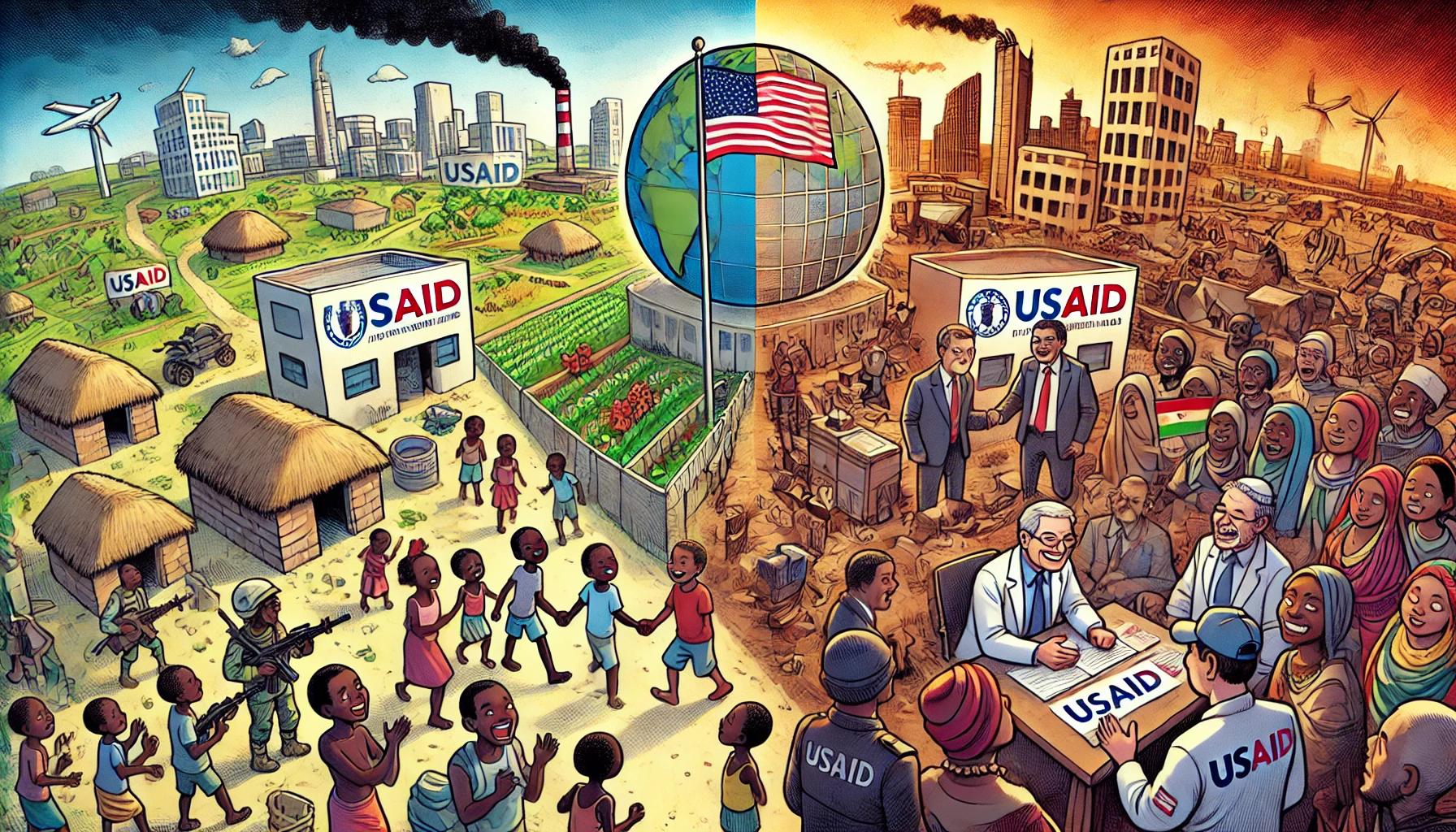USAID: Africa’s Lifeline or America’s Long Con?
For decades, Africa has been at the mercy of Western aid organizations, and USAID has been the grandmaster of this elaborate game. A game where the rules are clear: keep the continent dependent, keep the leaders compromised, and keep the people waiting. But with the recent gutting of USAID, orchestrated by the Trump-Musk alliance, one question looms large—was this a necessary purge for Africa’s rebirth, or just another reshuffling of the same exploitative deck?
A Carrot for the Donkey
Let’s be blunt. USAID has been the carrot dangled before Africa’s hungry masses while the stick of economic control, military intervention, and political puppeteering remained firmly in America’s grasp. They come bearing “help”—but only on their terms. Aid that never truly empowers, loans that strangle economies, and programs that make headlines but change nothing fundamental.
For years, African nations have been force-fed development programs designed in Washington conference rooms. They have been told what’s best for them by policymakers who have never set foot in a village without a convoy of armed guards and camera crews. They have funded “democracy-building” while handpicking the very dictators they later claim to fight. Now, with USAID under fire, the real question is: do we really need it?
Traoré’s View: A New Model or Just Rhetoric?
Burkina Faso’s Ibrahim Traoré has taken a radical stance, rejecting Western aid and urging Africa to break free from financial slavery. But is his approach realistic, or just another populist rallying cry? So far, Burkina Faso under his rule has taken steps toward economic independence, emphasizing local resource management and regional cooperation. But can this model survive without falling into the hands of another geopolitical power like Russia or China? Time will tell.
What’s clear is that Traoré understands what many African leaders are too afraid to say: foreign aid is not about helping Africa; it’s about controlling Africa. Every dollar that comes in through the front door is a leash that tightens around our sovereignty.
The Never-Ending Wars: Who Really Funds Them?
Somalia, South Sudan, the DRC, Nigeria—name a country in turmoil, and you’ll find foreign fingerprints all over it. Insurgent groups don’t fund themselves. The weapons, the training, the logistical support—these things cost money, and they don’t fall from the sky. Who benefits from these endless conflicts? Arms manufacturers, warlords, multinational corporations eyeing Africa’s vast resources, and—surprise, surprise—certain foreign governments claiming to fight terror while quietly feeding it.
Take Nigeria, for example. Boko Haram and other insurgent groups have caused untold devastation. Yet, despite the billions poured into counterterrorism, these groups remain well-armed and well-funded. Why? Because war is a business. If Africa were stable, if its people were united and its resources controlled by its own governments, the global power balance would shift. And that is something the West cannot allow.
Cutting the Snake’s Head Off, Not Massaging It
For too long, Africa has been trying to reason with the very forces that profit from its misery. Leaders have begged for fair trade, for honest partnerships, for an end to the cycle of dependency. But as long as we keep massaging the snake, hoping it will stop biting, we will continue to bleed.
If USAID’s exit signals anything, it’s that Africa has a chance to redefine its future. But only if we have the courage to stand on our own. This is not about rejecting the West for the sake of rejection. It’s about demanding respect, real partnerships, and an end to the age-old game where Africa is the pawn and foreign powers are the players.
So, should USAID go? Yes. And it should take all its strings, conditions, and false promises with it. Africa’s destiny is in its own hands—if only it’s willing to take it.

2 comments
smqi3l
Good https://is.gd/tpjNyL